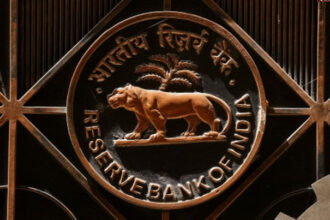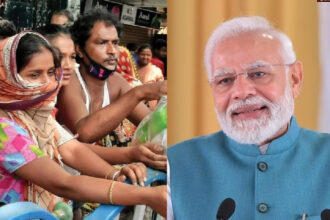For years, we were told to look across the border when we spoke of Bharat’s enemies. The image of the traitor was always in Pakistan- a convenient villain, a safe distance away. But what if the truth is far more unsettling? What if the real traitors never crossed the border at all? What if they sat right here, in Delhi, cloaked in power, holding constitutional posts, and yet betraying the very Republic they swore to serve?
And what if the hand that nurtured them, protected them, and made them untouchable was always the same? Congress.
The Constitution of Bharat is unambiguous in its promise: equality for all citizens, irrespective of gender, caste, or creed. And yet, when the issue of triple talaq – an archaic practice that left Muslim women vulnerable and voiceless – came before the bench, Abdul Nazeer chose not the Constitution, but the Sharia.
It was a moment of truth. He had the chance to stand with Bharat’s daughters, to uphold their constitutional rights. Instead, he bent before clerics. Who gave him the confidence that such a betrayal would be protected, even applauded? Congress. The party that has always hidden behind “secularism” to protect vote-bank politics, even if it meant sacrificing women at the altar of appeasement.
Then there is Hamid Ansari. Twice elected as the Vice President of Bharat. A man who sat at the very top of our Republic. And yet, insiders from RAW, our intelligence agency, revealed how during his tenure, lives of Indian spies were compromised.
Think about this for a moment. Our agents – faceless men working in hostile lands, risking their lives for Bharat, were put in danger not by the ISI, not by the CIA, but by one of our own sitting in Delhi. If that is not betrayal of the nation, what is? But again, ask yourself – who elevated Ansari, who shielded him, who never questioned him? Congress.
And what about S.Y. Qureshi, the former Chief Election Commissioner? If there is one role in the Republic that demands absolute neutrality, it is this. The CEC is the guardian of democracy, the umpire who must ensure fairness when the people of Bharat exercise their greatest power – the vote.
But Qureshi’s tenure raised uncomfortable questions. His decisions and stances often seemed tilted, less like the actions of a neutral referee, more like the conduct of a man deeply aligned to a political ecosystem. Again, not the Republic. Not Bharat. Congress.
A System of Betrayal
These men were not anomalies. They were not isolated mistakes. They were caretakers of a system – a decayed ecosystem designed by Congress where betrayal of Bharat was not a crime but a qualification.
For decades, this system was dressed up as “constitutional morality,” as “secular balance,” as “protection of minorities.” But strip away the mask, and the truth glares back at us: it was always about protecting Congress’ survival. Always about preserving its vote-bank empire.
The tragedy is not that such men existed. The tragedy is that we, as a nation, were told to trust them. That they wore the robes of justice, the crown of the Republic, the cloak of democracy and we believed them.
And so, when you think of traitors, don’t just look across the border. Pakistan has been an easy villain. But the knife that stabbed Bharat was sharpened right here in Delhi. And the hand that held it, time and again, was Congress.
The question now is not just about the past. The question we must all ask, with courage, is this:
How many more like them still sit quietly in our corridors of power, waiting for their chance?





